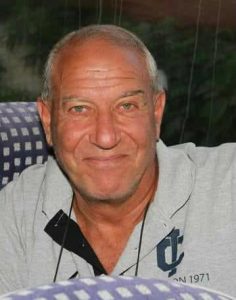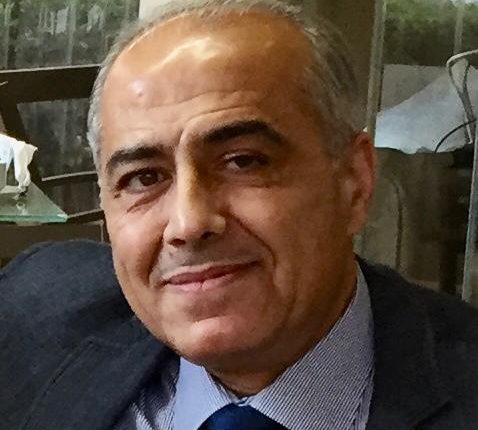MORE POWER TO SUDAN, NOT LEBANON
By General Monzer El Ayoubi*
Translation: Dr. Pierre A. Sarkis**

A country totally delinquent politically and economically, with its former president Omar Hassan Ahmed Al Bashir committing crimes against humanity and genocide during his rule for decades, with several arrest warrants issued against him by the International Criminal Court and the Supreme Court of the Republic of South Africa.
During the month of December 2018, and against the backdrop of negative political, livelihood and social accumulations starting with prevalent government corruption, and the spread of extreme poverty with high unemployment and loss of basic foodstuffs, the overall economic situation deteriorated in an unprecedented fashion resulting in the lack of freedom of expression and the prosecution of activists of the political opposition. Hundreds of thousands Sudani citizens took to the streets of the capital city Khartoum and other major cities (Port Sudan, Atbara, Omdurman, and others) in demonstrations and sit-ins, demanding the beginning of reform and an end to corruption, along with the improvement of living conditions. These were confronted by forces of the security apparatus and the intelligence services who used excessive violence and live bullets, in order to suppress the protests and clamp down on opponents. The clashes caused tens of deaths and injuries along with hundreds of detainees. In the midst of the bloody violence, things developed as popular demands now shifted, calling for an end to the dictatorship rule with its entrenched Islamic face, and the peaceful transfer to a civil rule based on the foundations of the democratic state.
In parallel, the popular movement did not delay in organizing itself as it formed its committees under the title “the forces of freedom and change”, which included many civil movement groups. In less than a year, and despite President Al Bashir’s attempts, however late, to absorb the popular movement through promises of economic and political reforms, the army led by General Ahmed Awad Bin Auf toppled the regime, ousting President Al Bashir, and then declared a state of emergency in the country for three months followed by a two-year transitional period culminating in free elections.
Without any digression in the throes of that period with the tear flow, the bloodshed and ascended martyrs it carried, the most recent being a massacre committed by the Rapid Support Forces against unarmed and innocent demonstrators, as well as, a series of coup attempts by struggle-ridden military leaders leading to the Constitutional Declaration Agreement between the forces of freedom and change and the military authorities, then with the Sovereign Council as the first steps towards a Civilian State. Finally, the issuance of Decree No. 6 for 2021, guaranteed the return of the federal regional system of government that was applied before the rule of the deposed president, after the signing of the Juba Agreement for peace with the armed movements and the Revolutionary Front, in a clear decision to protect the unity of Sudan and not breed any new crises, by establishing decentralization for the provinces with regard to legislation, services, and economic development plans, irrespective of foreign and defense policy.
In a related context, with the Sovereign Council led by General Abdel Fattah Al Burhan and the new Prime Minister Abdalla Hamdok, Sudan witnessed a democratic transition toward the civil state contrary to all expectations of divisions, and the continuous and usual deeply embedded internal strife whether military or political in the Arab unconsciousness. Apart from US attempts to push Sudan towards normalization of relations with Israel, the Sudanese government rid itself of US sanctions and was thus removed from the list of terrorist states, with the Prime Minister stressing that “the issue of normalization requires a deep discourse among different segments of the Sudanese population.”
In a move that reflects the maturity of the new Sudanese legitimacy and the inauguration of modern Sudan which it is pursuing, and after implementing a series of monetary, financial and legislative reforms, a conference was convened in Paris on the 17th of May, under the slogan “The World Supports Sudan”, to save and revive its economy by providing investment opportunities and stimulating projects in the fields of energy, agriculture, transportation, infrastructure, etc… in cooperation with the Paris Club and the French government.
From another perspective, World Bank President David Malpass, praised the pace of democratic transition in Sudan and the earnest will to proceed with reforms, as being important incentives for the success of the conference, according to the following:
• Bilateral debt exemptions with a total value of $30 billion.
• All French debt of $5 billion has been cancelled with Paris offering a loan of $1.5 billion.
• Cancellation of Norway’s debt of $4.5 billion.
• Cancellation of Saudi Arabia’s debt of $5 billion.
• A provision of $2 billion by the world bank to invest in health and energy programs.
• A provision by the African Import and Finance Bank of $700 million to the Sudanese government to invest in telecommunications projects.
• Grants provided by the US, Sweden and Italy of $13 billion to cover arrears, dues, and financial interests.
• Work to encourage and attract foreign investments with the Sudanese government providing significant concessions to investors.
In summary, despite its painful reform process, Sudan has been able to grab the opportunity and regain its position in the international development system from a serious investment and political aspect, amid unprecedented international attention and wide internal and international expectations to implement development plans and fight the spread of poverty, thereby ridding the country of its crises. The conference also yielded results by eliminating 80% of Sudan’s debts, after it reached the completion point meeting the terms of the HIPC initiative launched by the World Bank in 1996, to help the heavily indebted poor countries.
In seeking the truth, what about the stricken country? From Sudan with its vast area of 1.886 million km2 and its important resources, to Lebanon with its 10452 km2 and its most important resource being its young women, young men and expatriates, the comparison with what happened and happens becomes tragically painful:
• The popular uprising or revolution failed to create or produce a leadership council or a body to lead the civil and peaceful protest movement and unite its demands, to force the government at that time to carry out monetary, economic and livelihood reforms.
• The recent government of Prime Minister Saad Harriri failed to implement its reform program, and then resigned under the weight of rightful demands and popular anger in the absence of any cooperation from political parties.
• Authorities succeeded in penetrating demonstrations and sit-ins with subversive attacks on public and private institutions, forcing citizens to stay put inside their homes.
• Accusing the protest movement of treason after inciting it by intelligence services to cut off roads and isolate areas, bringing back memories of periods of the civil war and the barricades of sectarian strife.
• The complicity of some security forces by confronting sit-ins with excessive violence leading to the deaths of some, and poking the eyes of others with rubber bullets without any judicial and legal accountability, and in front of local and foreign media.
• Use the US dollar as the confrontation weapon by devaluing the purchasing power of the national currency, and the rise in poverty and unemployment by 60 percent and exacerbating waves of immigration.
• Using banks as a main point of pressure by withholding and detaining depositors’ funds without any legal deterrent, in clear violation of the constitution and laws of private property.
• Depriving people of vital and subsistence goods, fuel and medicine, smuggling them outside Lebanon by distracting people from their demands, causing them to secure alternative sources of livelihood and life requirements.
• Throwing smoke and sound bombs in the form of constitutional amendments and inventing political norms by jurisprudence, of what God brought down from the Sultan, in order to fuel dissension or at least accelerate the ruin of the country.
• The explosion of the ammonium nitrate stored for years in ward 12 at Beirut port which by suspicion of arson and not coincidence, added to the disaster, and made it one of the demands of the families of the martyrs and the wounded, along with the new issue of rebuilding one third of the destroyed city.
• Working on discrediting the judiciary system and its failure to deal with corruption and other files, as a result of political interference that led people to lose confidence in the most important and paramount judiciary authority, which is the recourse to administering justice.
• The failure of different political parties to agree to form a government of rescue and mission and thwarting the precious French initiative, despite French President Emanuel Macron’s efforts to save the country from the real plague, the politicians themselves.
• Linking the formation of the new government to regional issues and putting it on hold for the sake of several entitlements, such as, the negotiations in Vienna regarding the Iranian nuclear program, the Saudi-Iranian and Saudi-Syrian rapprochement, and the Iranian and Syrian presidential elections.
• Defining the demarcation line with the Israeli enemy, and thus, bringing to naught any hopes with the lack of investment opportunities in the gas fields, or at least suspend it for an unknown time, leading to a lack of development opportunities.
This is just a drop in the bucket of the suffering of the Lebanese (no electricity, rampant pollution, dilapidated infrastructure, etc…) which prevented economic and political reforms, anti-corruption and good governance, as well as preventing the forensic financial audit, implement World Bank conditions, return looted funds, lift bank secrecy and retrieve depositors’ money leading to the Paris Conference for rescue, with both being elusive.
To conclude, Sudan the fraternal country, succeeded despite all the political and economic difficulties, ethnic divisions and calls for separation (between the Moslem North and Christian South), by following the path of rescue and reform quickly and efficiently for one reason, namely pure loyal nationalism and a determined serious will from its leaders, citizens, and emerging democratic state institutions. On the other hand, we recall the saying of French Emperor Napoleon Bonaparte, who passed away two hundred years ago on the fifth of this month “stupidity in politics is not an obstacle.” Lebanese politicians, the ruling class and the allied oligarchical junta succeeded in driving the beautiful country sitting on the shores of the Eastern Mediterranean Sea, with its mountains resplendent with Cedar trees, its saints and minarets, towards total collapse and the fall of the temple. But a glimmer of light in the rescue effort may be in harmony with the initiative of House Speaker Nabih Berri, and the prayers of the head of Bkerke (the Maronite Patriarch), as it might be a real incentive to form the expected government. However, and very noticeable, was the visit of Army Commander, General Joseph Aoun to France, without drowning it into issues of control and influence from this or that country, which showed the level of trust in the military, along with its added value, a meeting with the French President Macron. Apparently, this could be the type of “made in Lebanon”, the stick that was repeatedly waved by the master of the Elysee, and recently, French Foreign Minister, Jean-Yves Le Drian, in its depth lies the harshest and most important moral punishment towards some political parties and hinderers, who build their ambitions on the destruction of the country, hinting that supporting the army and its leadership is the local medicine…
*Scholar in Security and Strategic Affairs
**Expert in Russian Area Studies/The Soviet Union. Retired Instructor of International Relations and Political Science.
Beirut, 28/05/2021

